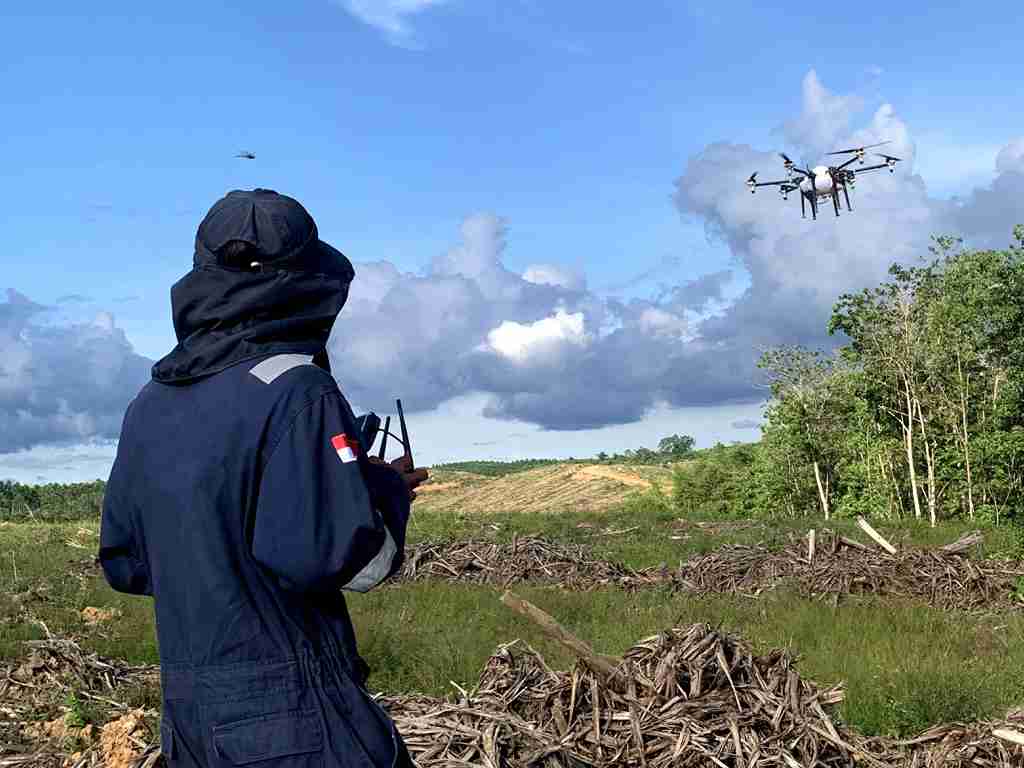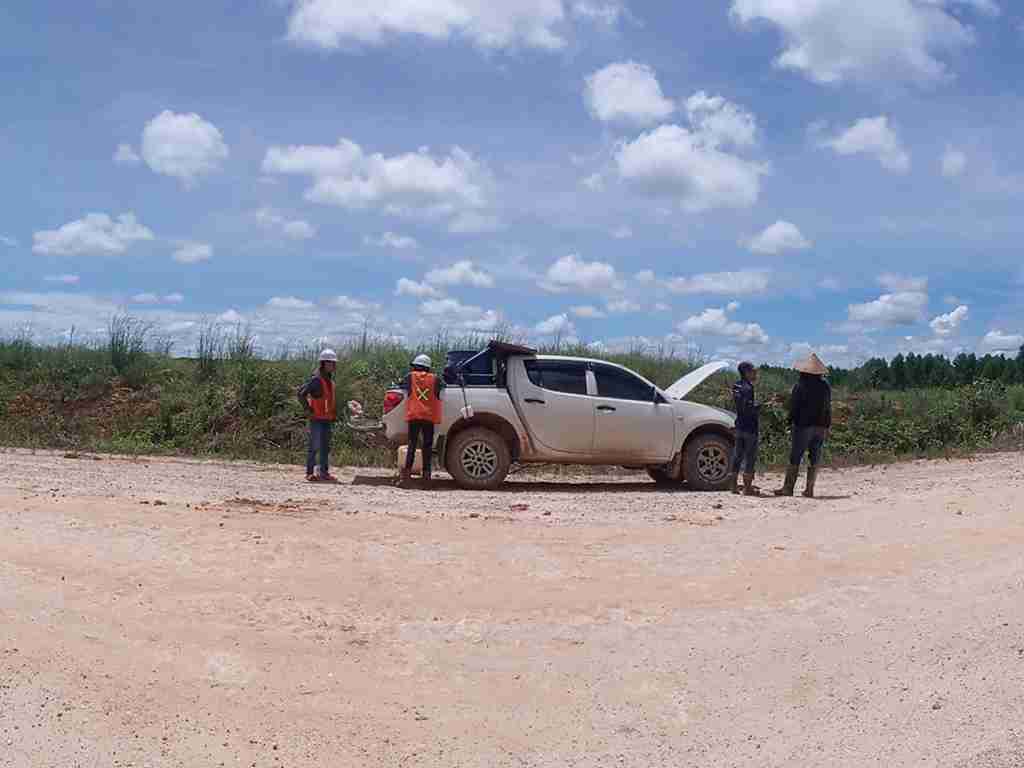The integration of drone technology has revolutionized traditional farming practices. With drones playing an increasingly significant role in crop management, soil analysis, and overall farm optimization, the demand for skilled professionals in the agriculture drone industry jobs has skyrocketed.
Within agriculture drone technology, there are various promising career paths to pursue. This comprehensive guide is designed to provide an in-depth look at these career paths and their vital roles in shaping the future of farming. From the skilled drone pilots who operate the aircraft to the data processors who analyze the collected data, each role is critical in ensuring the success and efficiency of modern agricultural practices.
Landing Your Four Dream Work in Agriculture Drone Industry Jobs
Drone Pilots
What is a Drone Pilot?
If you love the feeling of soaring high up in the sky and enjoy working in ever-changing environments, a career as a drone pilot is what you’re looking for. As a drone pilot, you would be responsible for operating drones remotely to perform various agricultural tasks, such as crop scouting, monitoring irrigation systems, and spraying crops with fertilizers and pesticides.
By doing so, you would play a vital role in optimizing farm operations and maximizing crop yields, thereby contributing to the world’s food production. So, if you are passionate about flying and want to impact the world positively, becoming a drone pilot is a fulfilling career choice.
What Does a Drone Pilot Do?
Drone pilots must possess a keen understanding of agricultural tasks that drones can perform and the ability to navigate drones precisely. Your duties often include:
1. Overseeing ground and flight operations.
2. Adhering to flight plans.
3. Conducting safety checks.
4. Troubleshooting equipment issues.
5. Coordinating with ground crews and other pilots.

Drone Maintenance Technician or Drone Engineer
What is a Drone Engineer?
Drone engineers are highly skilled professionals responsible for conceptualizing, designing, and maintaining drones tailored explicitly for use in the agricultural industry. These experts possess in-depth knowledge of drone technology and deeply understand the unique challenges of agribusiness in their day-to-day operations. They also work tirelessly to ensure that drones have cutting-edge features and functionality, enabling agribusiness to improve their yields, reduce costs, and operate more efficiently.
From developing advanced imaging systems that can accurately map crop fields to creating sophisticated sensors that can detect soil moisture levels, drone engineers are at the forefront of innovation in modern agriculture.
What Does a Drone Engineer Do?
Drone engineers are responsible for working on different components of drone systems, including flight controllers, navigation systems, and payload systems. They also integrate infrared, multispectral, and hyperspectral sensors into drone systems to analyze crop health and soil conditions. In addition, drone engineers develop software for drone navigation, data collection, and analysis, perform rigorous testing to ensure functionality and reliability, and provide maintenance and repair services to keep drones in optimal working condition.
Drone Data Processing
What is a Data Processor?
Drone technology has revolutionized agriculture by giving agribusiness a bird’s eye view of their crops and land. However, the vast amounts of data collected by drones can be overwhelming. That’s where drone data processors manage and interpret this data.
By processing raw data into actionable insights, these professionals provide agribusiness with valuable information to inform their decision-making. From identifying crop health issues to monitoring soil moisture levels, drone data processors are also responsible for turning raw data into valuable insights. It can help agribusiness improve crop yields and make informed decisions.
What Does a Data Processor Do?
Data processors are responsible for managing the data collected from drones, which includes information on crop health, soil conditions, weather patterns, and more. They convert the raw data into formats that can be analyzed, conduct a thorough analysis to extract meaningful insights, and produce different outputs such as RGB and multispectral aerial photography data, orthomosaic, DSM, DTM, and CHM. Additionally, they work with acquisition teams to coordinate data collection efforts, evaluate GIS data, and provide technical support for any data-related issues.
Geospatial Analysis or GIS Analyst
What is a GIS Analyst?
The Food and Agriculture Organization (FAO) has been effectively utilizing GIS (Geographic Information System) and other geospatial technologies for over 30 years to establish sustainable food systems on a global scale. Then, GIS has proven to be an essential tool for promoting sustainable agriculture by facilitating the transition to organic farming, identifying the most optimal locations for new crop planting, and efficiently managing farmland allocation for future food production.
What Does a GIS Analyst Do?
In general, in agriculture drone industry jobs, your duties often include:
1. Monitoring and managing water supplies.
2. Forecasting droughts and predicting crop yields.
3. Assessing the economic and environmental impacts of human activities and natural events.
4. Integrating data from multiple sources to analyze agriculture.
5. Facilitating the sharing of data and maps among departments and organizations.
6. Serving as an online information and guidance center for local communities, seeking to make informed resource management and environmental stewardship decisions.
How Do I Get Into The Drone Industry?

The field of agricultural drones presents a wide range of job opportunities beyond the ones already discussed. Hence, Terra Agri, a reputable drone service provider in Indonesia and Malaysia, is at the forefront of the technology-based precision agriculture movement, offering gratifying career prospects to those interested in this field. Suppose you want to join a dynamic team of professionals who share your passion for precision agriculture and cutting-edge technology. Please visit the Terra Agri career page and check out the current vacancies.
Conclusion
In conclusion, careers in agriculture drone technology offer a unique blend of innovation, technology, and agriculture, making them an appealing choice for individuals passionate about shaping the future of farming. Whether you’re interested in piloting drones, designing cutting-edge drone systems, or analyzing drone-collected data, abundant opportunities are available in this dynamic and rapidly growing field. So, if you’re ready to embark on an exciting and rewarding career journey, consider exploring the diverse career paths available in agriculture drone technology.

